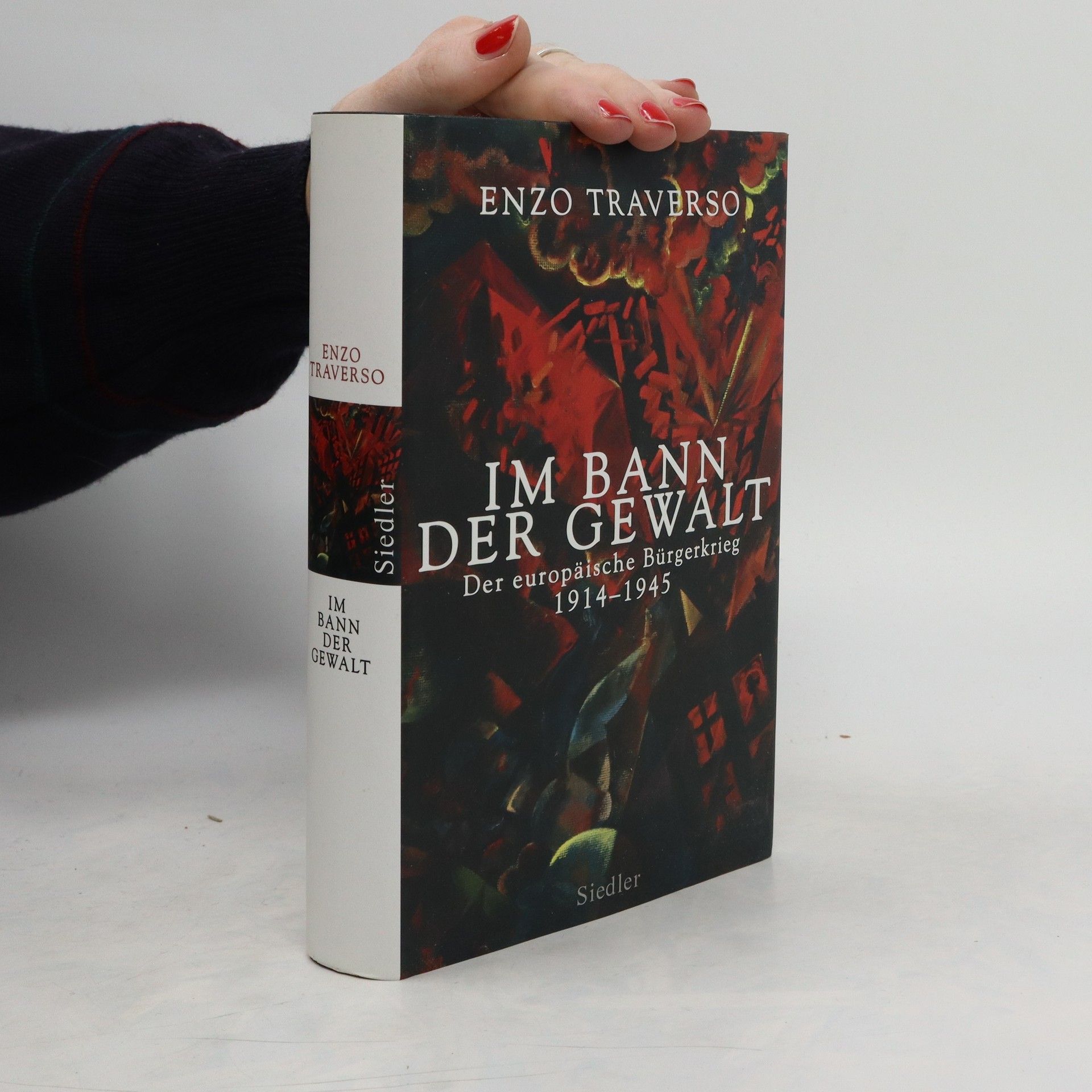Le XXe siècle s'est arrêté un beau jour de 1989, avec la chute du mur de Berlin. Ce qui jusqu'à la veille palpitait dans le présent a soudainement semblé faire partie de l'histoire. Profondément affectée par cette rupture, l'historiographie a dû remettre en cause ses paradigmes, questionner ses méthodes, redéfinir ses domaines. Dans ce livre, Enzo Traverso reconstitue de manière magistrale et critique le tableau d'ensemble des mutations qui sont au coeur des grands débats historiographiques actuels. Il y aborde les grandes catégories interprétatives, tant anciennes (révolution, fascisme) que nouvelles (biopouvoir), pour mettre en lumière à la fois la fécondité et les limites de leurs apports ou de leurs métamorphoses. Il y interroge le comparatisme historique, d'abord en étudiant les usages de la Shoah comme paradigme des génocides, puis en mettant en parallèle l'exil juif et la diaspora noire, deux thèmes majeurs de l'histoire intellectuelle. Il analyse, enfin, les interférences entre histoire et mémoire, entre mise à distance et sensibilité du vécu, qui affectent aujourd'hui toute narration du XXe siècle.
Enzo Traverso Livres
Enzo Traverso est un historien et théoricien contemporain de premier plan dont l'œuvre explore en profondeur la nature du totalitarisme, de la violence et des dynamiques intergroupes complexes au sein des conflits historiques. Il s'appuie sur un large éventail de disciplines, notamment la science politique et la sociologie, pour analyser les racines et les manifestations des idéologies extrémistes et leur impact sur la société. Son écriture se caractérise par une approche analytique pénétrante, cherchant à comprendre les aspects les plus sombres de l'histoire moderne afin d'en éclairer l'influence durable. Les contributions de Traverso sont appréciées pour leur rigueur intellectuelle et aident les lecteurs à aborder les défis majeurs des XXe et XXIe siècles.







Les marxistes et la question juive
- 316pages
- 12 heures de lecture
A cultural and intellectual balance-sheet of the twentieth century's age of revolutions
Singular Pasts offers a critical account of the emergence of authorial subjectivity in historical writing, scrutinizing both its achievements and its shortcomings. Enzo Traverso considers a group of contemporary historians who reveal their emotional ties to their subjects and give their writing a literary flavor.
Gaza Faces History
- 128pages
- 5 heures de lecture
The essay offers a critical examination of the Israeli-Palestinian conflict, providing historical insights that challenge prevailing Western perceptions. Through a thorough analysis, the historian aims to deepen understanding of the complexities surrounding the war, highlighting the urgent need for a reevaluation of attitudes towards the region.
Left-Wing Melancholia
- 312pages
- 11 heures de lecture
Left-Wing Melancholia is a path breaking work that combines history and political theory with a concise, richly analytical, exciting narrative. Enzo Traverso redefines our understanding of the current regimes of temporality - a sorrowful transition from the twentieth to the twenty-first century - and challenges historians and critical theorists alike to think beyond the standard binaries between history and memory, revolution and defeat, and melancholy and politics. In other words, this book is a gem. - Federico Finchelstein, The New School for Social Research
Die Brutalisierung der Welt im 20. Jahrhundert Eine radikal neue Perspektive auf das Zeitalter der Weltkriege und totalitären Regime in Europa. Enzo Traverso entfaltet ein Panorama der Jahre zwischen 1914 und 1945, die für ihn zur Epoche eines großen europäischen Bürgerkriegs verschmelzen. Enzo Traverso gelingt mit dieser Geschichte der europäischen Gewalt in der ersten Hälfte des 20. Jahrhunderts ein großer Wurf. Der italienische Historiker bietet einen neuen Ansatz, um zu verstehen, wie die Zivilgesellschaften des europäischen Kontinents innerhalb weniger Jahrzehnte an den Abgrund geraten konnten. Überzeugend deckt er Verbindungslinien zwischen politischen Prozessen und Entwicklungen in Literatur, Philosophie, Kunst und Film auf, die sich über alle ideologischen Lager erstreckten. Die Spirale der Brutalität in Worten, Bildern und Taten drehte sich immer schneller, bis an ihrem Ende schließlich der Holocaust stand. Das Buch macht eindrucksvoll bewusst, dass die politischen Katastrophen des 20. Jahrhunderts allein aus einem nationalen Kontext heraus nicht zu verstehen sind. Die beiden Weltkriege und die verschiedenen totalitären Regime erscheinen als Teil einer gemeinsamen europäischen Geschichte, die in den Sog eines gewalttätigen Denkens geraten war. • Ein neuer Blick auf die europäische Geschichte • Ein packendes Buch über die abgründige Verbindung von Kunst und Politik.
Die neuen Gesichter des Faschismus
Postfaschismus, Identitätspolitik, Antisemitismus und Islamophobie. Gespräche mir Régis Meyran
Fast überall in Europa sind neue rechtsradikale Bewegungen und Parteien entstanden, die teilweise über einen erheblichen Massenanhang verfügen. Da ihre Ideologie und Praxis im Unterschied zu ihren historischen Vorläufern weniger die gewaltsame Überwindung des Systems zum Ziel hat, sondern sie es von Innen autoritär umbauen wollen, reden die Medien häufig von Rechtspopulisten. Sie sind eine Sumpfpflanze der neoliberalen Globalisierung und der damit einhergehenden heftigen sozialen Erschütterungen. Als Feinde werden diesmal weniger die Juden als vielmehr die Migranten und Geflüchteten ausgemacht, zumal wenn sie aus muslimischen Ländern kommen. Überhaupt strukturiert die Islamfeindlichkeit die neuen europäischen Nationalismen. Im zweiten Teil des Buches beschäftigt sich der Autor mit der Ideologie und Politik des Islamismus und des Islamischen Staates. Diskutiert wird die Frage, welches die Ähnlichkeiten und die Unterschiede zum Faschismus und zu den neuen rechtsradikalen Parteien und Bewegungen sind
Franz Kafka und Walter Benjamin, Hannah Arendt, Günther Anders, Theodor W. Adorno, Jean Améry und Primo Levi, Paul Celan und die beiden nichtjüdischen Autoren Jean Paul Sartre und Dwight Macdonald deuten den Genozid an den Juden nicht als weitere Etappe in der Geschichte der Pogrome, sondern als Ereignis von universeller Tragweite. Die Texte, die Enzo Traverso untersucht, dokumentieren den beeindruckenden Versuch, auf die tiefgreifendste Verwerfung der Menschheitsgeschichte in unserem Jahrhundert zu reagieren, die Gleichgültigkeit und das Schweigen zu durchbrechen und das Unfassbare zu verstehen.
Die Juden und Deutschland
- 242pages
- 9 heures de lecture



